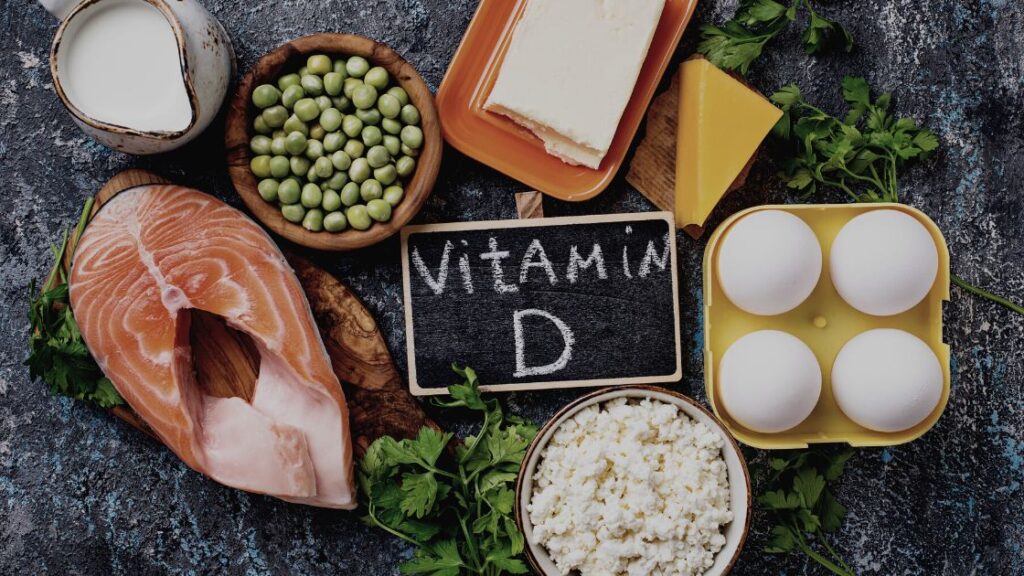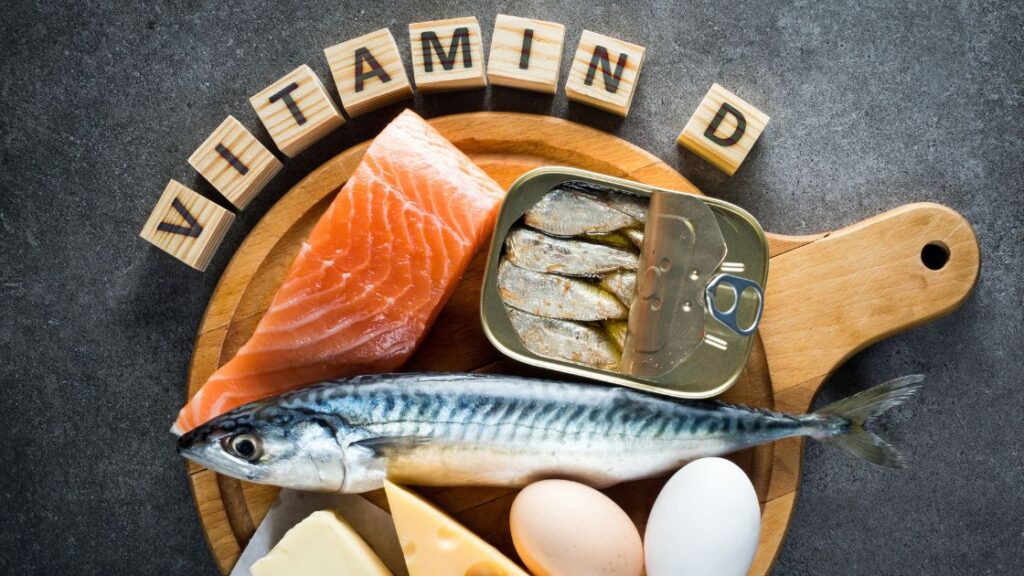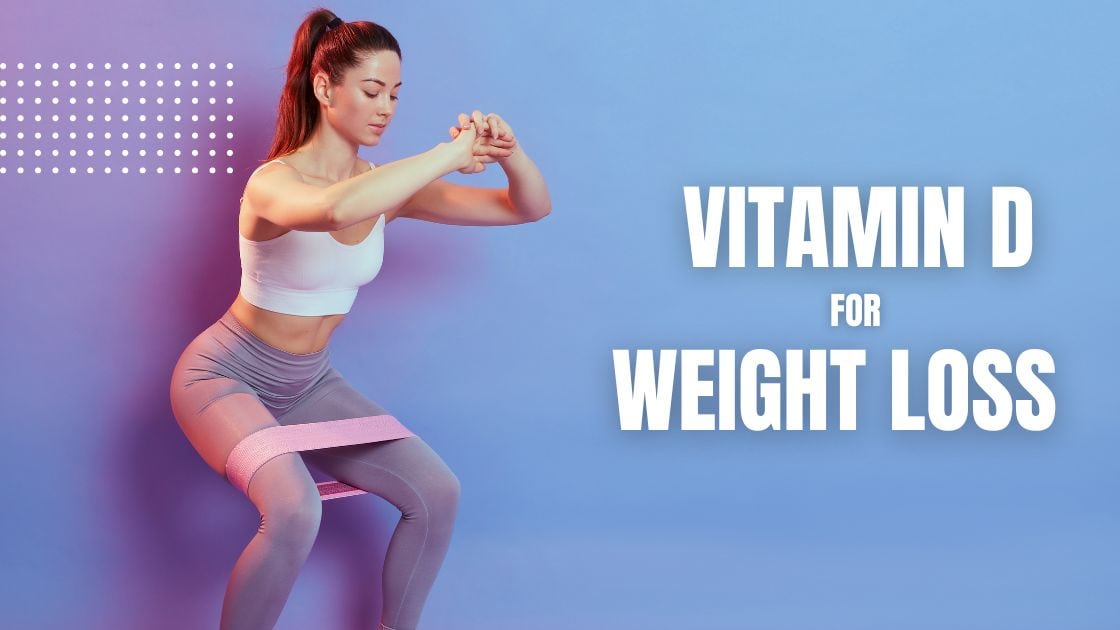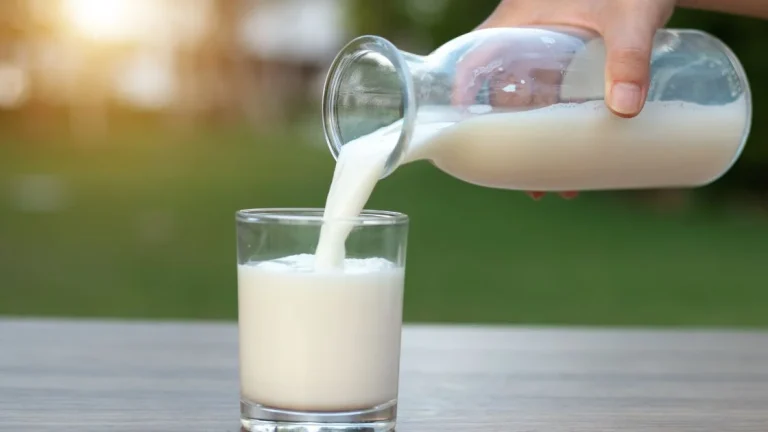Many readers are only too family with the struggle to shake a few extra pounds and keep it off. If this sounds familiar, you will also know that there are a variety of supplements that work well in combination to aid you in your battle with body fat.
Vitamin D is any dieter’s friend. It is called the happy vitamin for a reason – not only is vitamin D essential for overall health but it’s also known to help with weight loss. Though many people believe (falsely, we might add) that getting vitamin D can be harmful, the truth is that there’s a safe level of this sunshine supplement that you need to take in order to burn fat.
In this blog post, we’ll discuss the optimum amount of vitamin D you need to take to lose weight, as well as some of the sources of vitamin D that you need. Armed with this information, you’ll be able to make an informed decision about just how much you need to supplement your diet to help achieve weight loss goals!

What is Vitamin D?
Before we jump in, let’s start with the basics. Vitamin D is a fat-soluble vitamin that is unique in the sense that it is the only vitamin that comes from a non-food source.
This can become tricky to get your daily dose. There are fewer vitamin d-rich foods, and your body needs it on a cellular level. For instance, before you can absorb calcium which is crucial for strong and healthy bones, vitamin D needs to be present.
There is therefore a strong correlation between vitamin D and calcium. It also regulates other bodily functions, like your brain and muscle function. In addition, when it comes to weight loss, vitamin D is a diligent helper. It helps regulate blood sugar levels and reduces cholesterol levels.
How the Body Obtains Vitamin D
Your body naturally converts vitamin D from sunlight. Why did you think you think it is called the sunshine drug? The sunlight is then converted into calciferol, or rather, the active part of the vitamin. Unfortunately, most of us don’t get to spend as much time outdoors as we’d like, so vitamin D exposure becomes challenging.

Vitamin D is also not present in many foods, but fatty fish and fortified milk are decent sources. Your best bet, however, if you have limited exposure to natural sunlight, is to take vitamin D supplements. Otherwise, 10-15 minutes of sunlight every day should do the trick!
How Does Vitamin D Aid Weight Loss?
It’s known to play a role in controlling the body’s metabolism, which can help you lose weight by boosting your energy levels and digestion. Additionally, a vitamin D supplement can help ensure you’re getting the right amount of this important nutrient to prevent obesity-related diseases like Type 2 Diabetes.
It Helps Regulate Belly Fat
This nutrient helps to reduce the amount of belly fat by regulating the absorption of fat in the intestine and helping keep cholesterol levels under control. It helps to boost metabolism and reduce fat storage by increasing the absorption of nutrients from food.
Improves Lean Muscles, Strenght, and Bone Density
Increasing your lean muscle mass and building your strength is synonymous with your weight loss journey. Vitamin D helps you do just that while promoting bone density and preventing osteoporosis later in life. As we’ve mentioned, calcium is good for the bones, and vitamin D is good for calcium, so it is a win-win all around.
Counteracts Insulin Resistance
Experts believe that vitamin D supplementation can help to fight obesity and insulin resistance. In fact, research suggests that deficiency in this vitamin may contribute to weight gain and, again, Type 2 Diabetes.
How Much Vitamin D Should You Take To Lose Weight?
Research has shown that sufficient levels of Vitamin D can prevent obesity by regulating hormones and neurotransmitters that block the release of hunger hormones.
That said, there is no one-size-fits-all answer when it comes to weight loss and vitamin D intake. According to the official US National Institute of Health, women should take on average 600 to 800 IU (based on body weight) of vitamin D per day to combat a deficiency. However, this exact number is under debate – some experts believe that the dosage should be increased to a whopping 2 000 to 5 000 IU per day, especially in people who suffer from lower levels.

As with any weight loss regime, you are always advised to consult with your doctor first. There is a risk factor for vitamin D, but higher doses of vitamin D supplements are considered safe, as long as you don’t exceed the daily dose of 5 000 to 10 000 IU.
What Sources of Vitamin D Do We Need?
Aside from a day of fun in the sun, you can get your daily dose through diet and supplements. A little know the fact; there are two kinds of vitamin D.
Vitamin D2 or ergocalciferol is found in mushrooms
Vitamin D3 or cholecalciferol is absorbed through the sun, or present in oily fish (think salmon and mackerel) and egg yolks.
Vitamin D3 supplementation is the more powerful of the two and boosts your levels almost twice as much as the alternative.
A vitamin D deficiency is quite a common problem across the globe. It really doesn’t come as such a surprise, considering our busy lifestyles and being mostly stuck indoors in the office.
The Risk of Vitamin D Deficiency
A vitamin D deficiency is quite a common problem across the globe. It really doesn’t come as such a surprise, considering our busy lifestyles and being mostly stuck indoors in the office.
Approximately 42% of the US population suffers from a low vitamin D level, but the issue is more prevalent among women. As we know by now, vitamin D plays a role in weight loss by increasing the number of calories you burn and preventing your body from storing fat.
It does this by acting as an appetite suppressant, telling your brain that you don’t need food right now. However, a lack thereof is not only linked to obesity but other health issues, including
- Muscle weakness
- Bone loss
- Rickets
- Risk of fractures
- Stunted growth in children
- Thyroid problems
- High blood pressure.
Drop a Dress Size with Vitamin D
Vitamin D may, in itself not cause you to lose body weight, but it helps control appetite and burn fat. In order to maintain the optimum vitamin D level, make sure you’re getting enough sun exposure and vitamin D-rich foods like fatty fish, eggs, and fortified cereals. If you’re not getting enough sun exposure or you’re not feeling well, supplementation may be a good solution.
Remember that a healthy diet and exercise are also essential for weight loss success – make sure to include vitamin D into the mix! Supplements can be helpful in reaching optimal levels of vitamin D but always talk to your doctor before starting any new supplement regimen.









